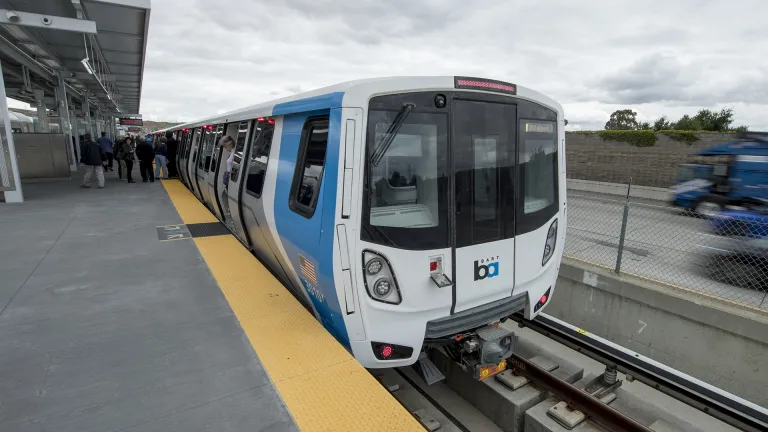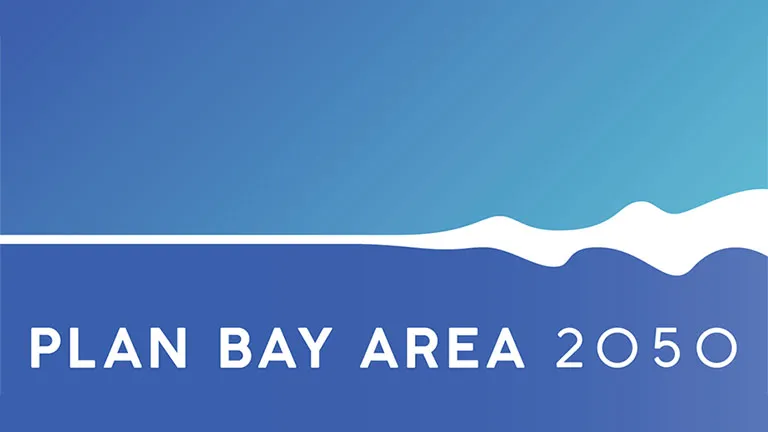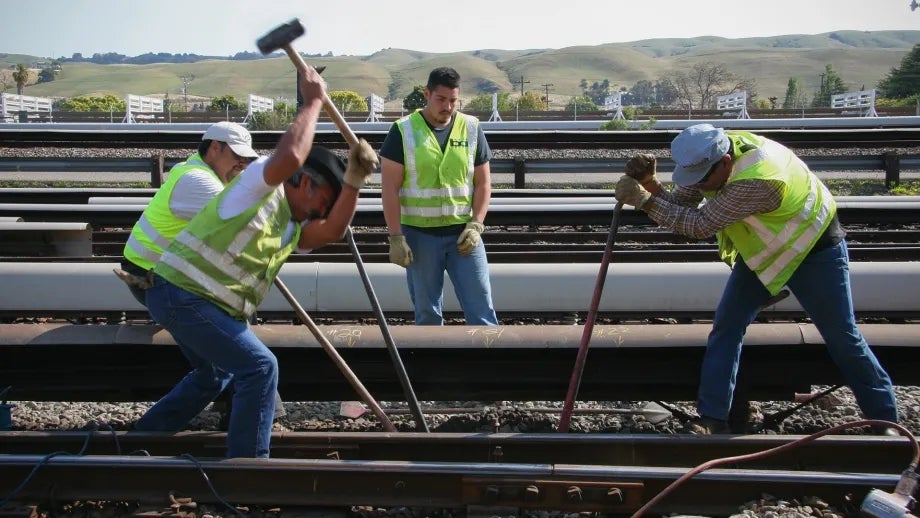Bipartisan Infrastructure Law (BIL)
The 2021 Infrastructure Investment and Jobs Act (H. R. 3684) — known as the Bipartisan Infrastructure Law (BIL) — allocates roughly $1 trillion for infrastructure investment, and reauthorizes the core federal surface transportation program.
In November 2021, President Biden signed the Bipartisan Infrastructure Law (BIL) into law, allocating roughly $1 trillion to upgrade transportation infrastructure, help close the digital divide, improve the electric grid and make communities healthier and more resilient.
Importantly, the bill includes a re-authorization of the core federal surface transportation program, which sets federal funding levels and policy direction for the next five years.
Bipartisan Infrastructure Law (BIL) at a Glance
The BIL provides up to $973 billion over five years for:
- Roads, bridges, and bicycle and pedestrian safety ($350 billion)
- Public transit and rail ($210 billion)
- Transportation projects of national, regional and local significance ($30 billion)
- Ports, airports and waterways ($42 billion)
- Water infrastructure ($91 billion)
- Broadband ($65 billion)
- Clean energy and power infrastructure ($65 billion)
- Resilience and environmental remediation ($71 billion)
For more details on the BIL Spending Categories, see the Related Documents section of this page.
See details for the Bipartisan Infrastructure Law competitive grants.

The BIL will help implement many of the 35 strategies included in Plan Bay Area 2050, the adopted long-term regional plan for transportation, housing, the environment and the economy.

Roads, Bridges & Transit Investments
The biggest piece of the new infrastructure bill is a $475 billion re-authorization of the core federal surface transportation program for the next five years, a 56% increase over the 2015 Fixing America’s Surface Transportation (FAST) Act. The BIL will provide the Bay Area with $4.5 billion to be distributed by MTC for transit, road and bicycle/pedestrian projects.
The BIL also provides $157 billion in one-time stimulus funding to be distributed nationwide through more than two dozen grant programs over five years.
Of this, Bay Area transportation projects will be able to compete for some $140 billion in various competitive grant programs. A $4.2 billion set-aside to fund bridge repair projects across California will enable Bay Area cities and counties to compete for funds to upgrade bridges along local streets and roads.
Climate Change & Resilience
The BIL has a groundbreaking new federal focus on climate change, tackling greenhouse gas emissions from all sides.
The law makes a big investment in transit and also provides dedicated resources for electrifying the transportation network, from port electrification to electric buses. It funds electric grid upgrades to meet increased demand, and invests in the charging network to make electric vehicles a more practical choice for more people.
The BIL also invests in making infrastructure more resilient to climate change-fueled natural hazards, including wildfires and drought; and provides new money to help the Bay Area's shoreline cities adapt to rising sea levels.
Prioritizing Equity
BIL funding supports programs to make the Bay Area a more equitable place to live, including:
- A $65 billion investment to close the “digital divide." This includes investing in broadband infrastructure and subsidizing monthly internet bills for low-income families
- Tens of billions of dollars to improve water quality, replace lead pipes and address water pollution
- $3.5 billion to supplement the Weatherization Assistance Program that reduces energy costs for households with low incomes
- $1 billion for the new Reconnecting Communities initiative to help re-knit and revitalize neighborhoods torn apart to make way for highways

